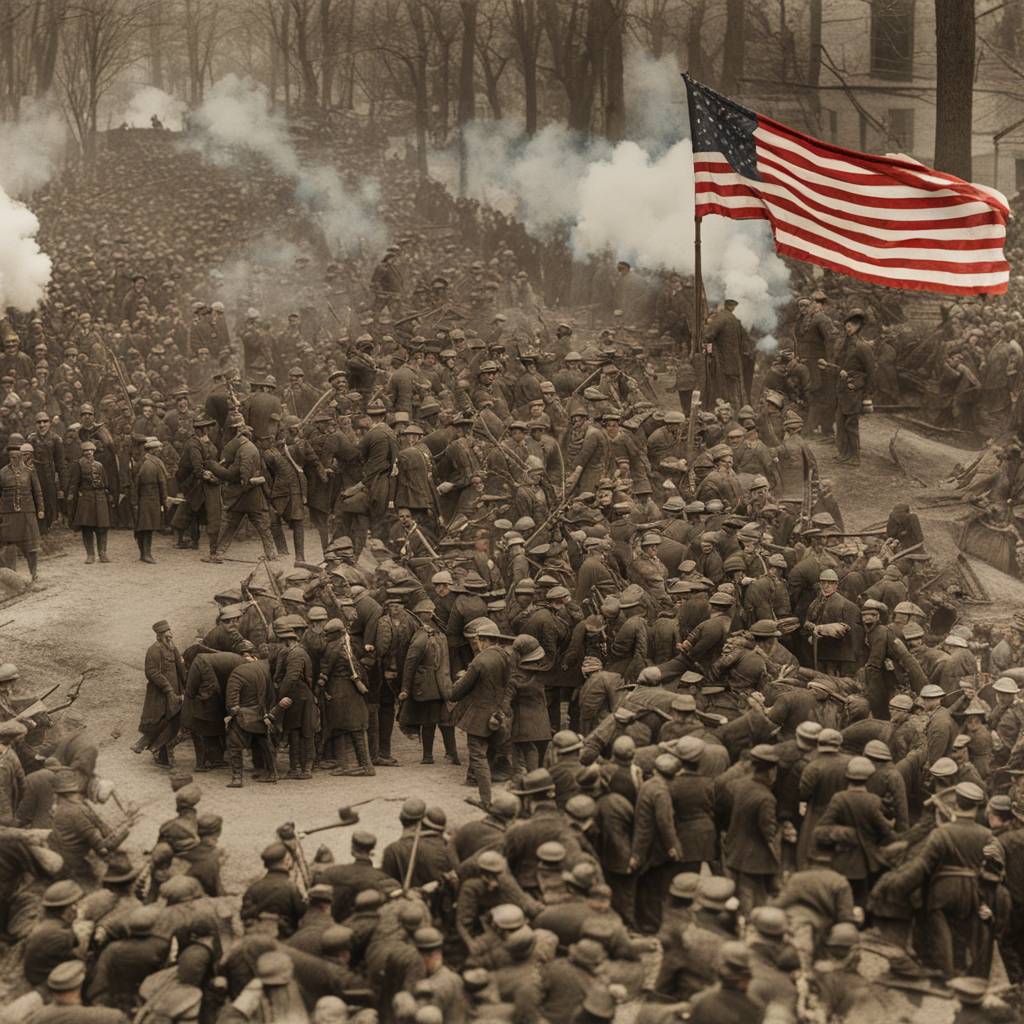On April 6, 1917, the United States officially entered World War I following a vote in the House of Representatives. President Woodrow Wilson had requested a declaration of war against Germany due to the threat of unrestricted submarine warfare and Germany’s potential alliance with Mexico. This decision came just five months after Wilson won reelection campaigning for peace. The U.S. had resisted entering the war despite previous provocations, such as the sinking of the Lusitania in 1915, which resulted in the loss of many American lives.
The renewed threat of unrestricted submarine warfare from Germany, along with the decoding of the Zimmerman Telegram offering Mexico U.S. territory, prompted the United States to finally enter the war. The American people responded with patriotism and commitment to the cause, forming an alliance with France and Great Britain. The American Expeditionary Force, led by General John Pershing, landed in France in June 1917, and the spirit of American resolve was captured in George Cohan’s song “Over There.” Despite their initial reluctance to join the conflict, the United States was now fully committed to supporting the Allies.
Over 116,000 American soldiers were killed and 204,000 wounded in just one year of combat in World War I. General Pershing led massive offensives, most notably the Meuse-Argonne Offensive, which effectively broke the stalemate on the Western Front and led to the end of the war. The offensive captured 200 square miles of German-held territory in France and was a significant turning point in the conflict. The United States suffered a staggering 120,000 casualties in just six weeks of combat during this offensive.
Many celebrated American military leaders of World War II, such as George C. Marshall, Douglas MacArthur, and George S. Patton, fought as young soldiers in World War I. Dwight Eisenhower, who served as Supreme Allied Commander in World War II, also served in World War I but remained stateside. The American Expeditionary Forces evolved into a modern, combat-tested army by the time of the Armistice in 1918, providing valuable strategic lessons and a skilled officer corps that would play a critical role in mobilizing and commanding American forces in World War II.
World War I left a lasting impact on the United States, shaping its military strategies and the leadership of future conflicts. The sacrifices made by American soldiers in the Great War helped shape the nation’s place on the world stage, leading to the emergence of the United States as a global superpower. The lessons learned from World War I, both in terms of military strategy and international relations, played a significant role in shaping American foreign policy in the years to come. The men and women who served and sacrificed in World War I are remembered as heroes, and their legacy continues to be honored and commemorated today.


